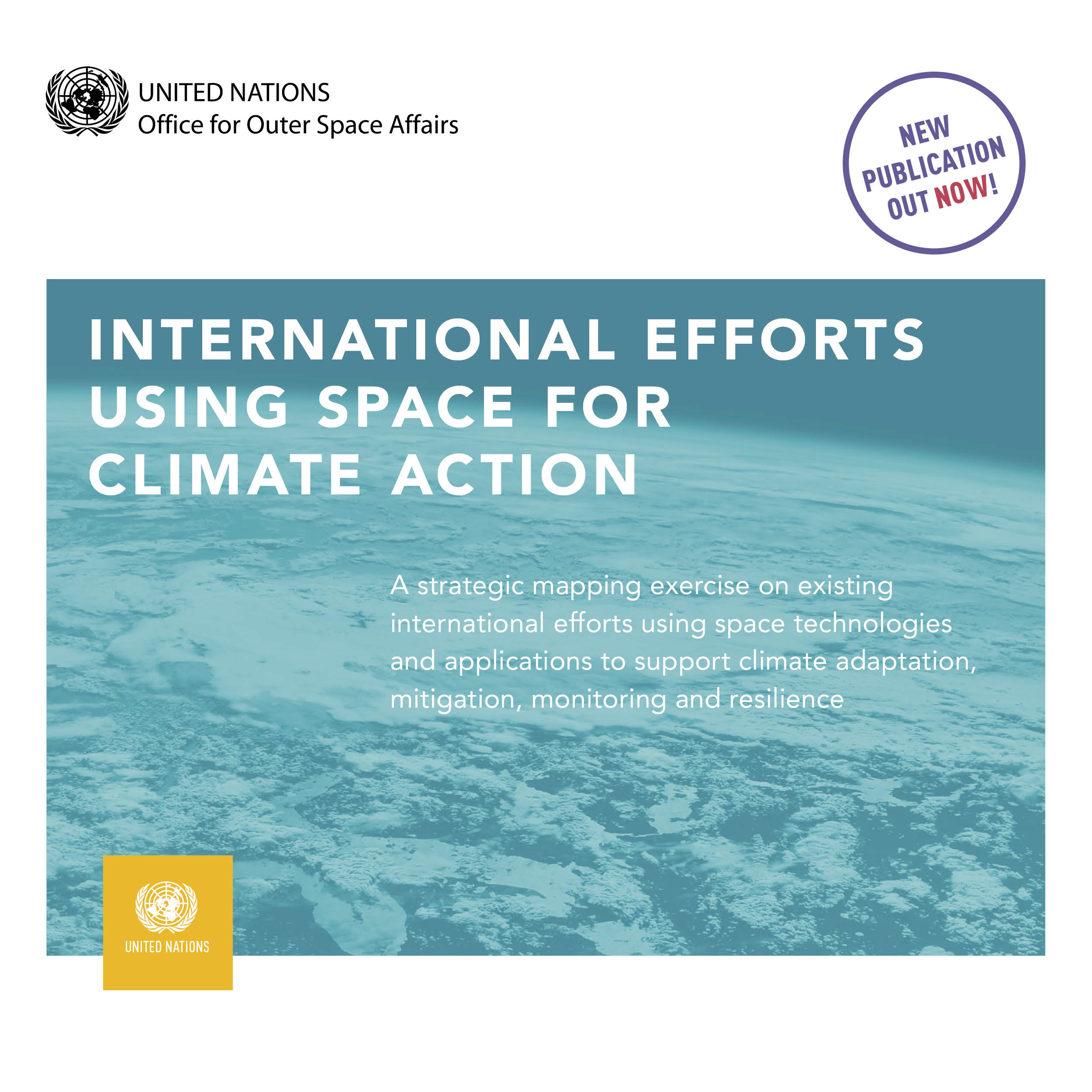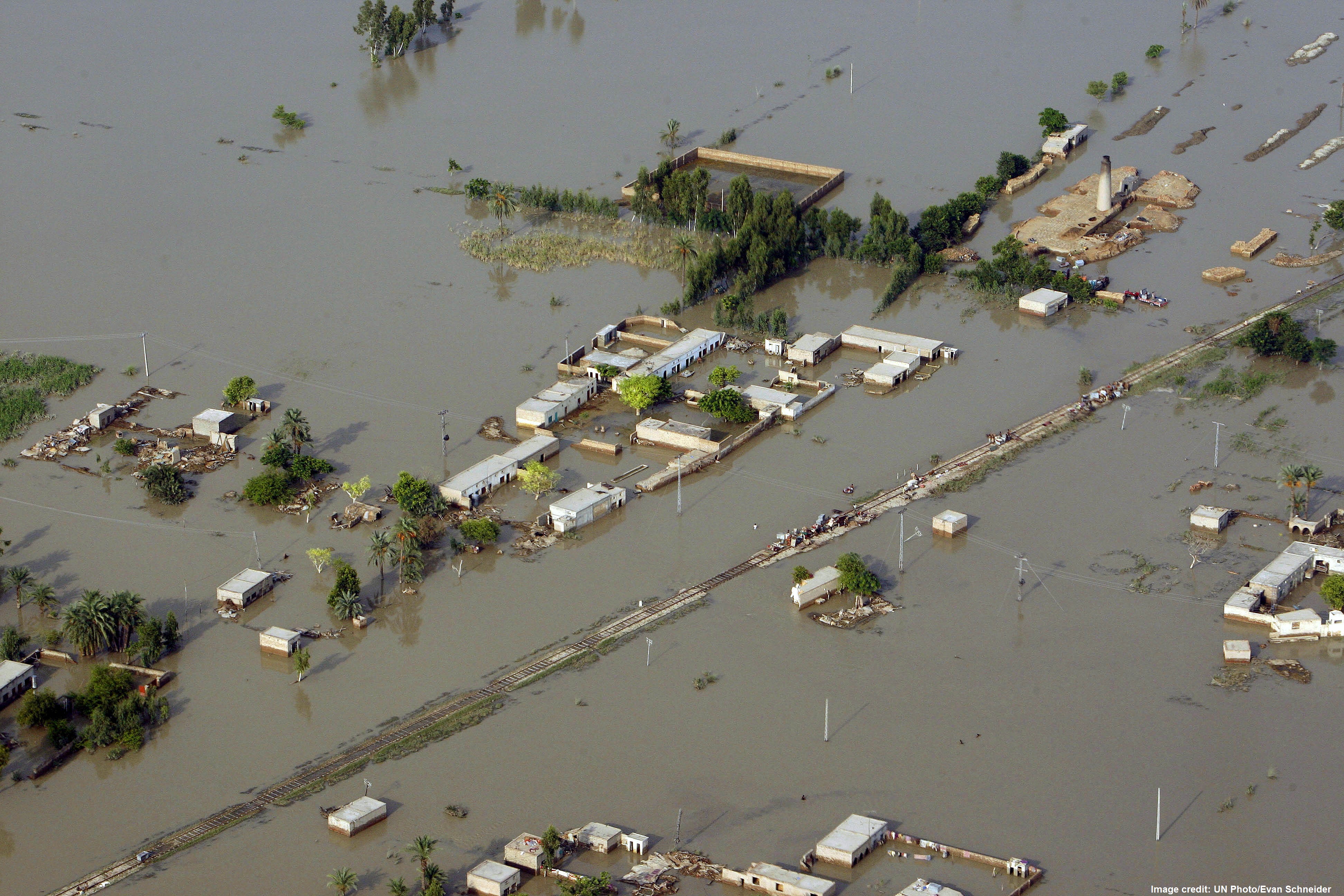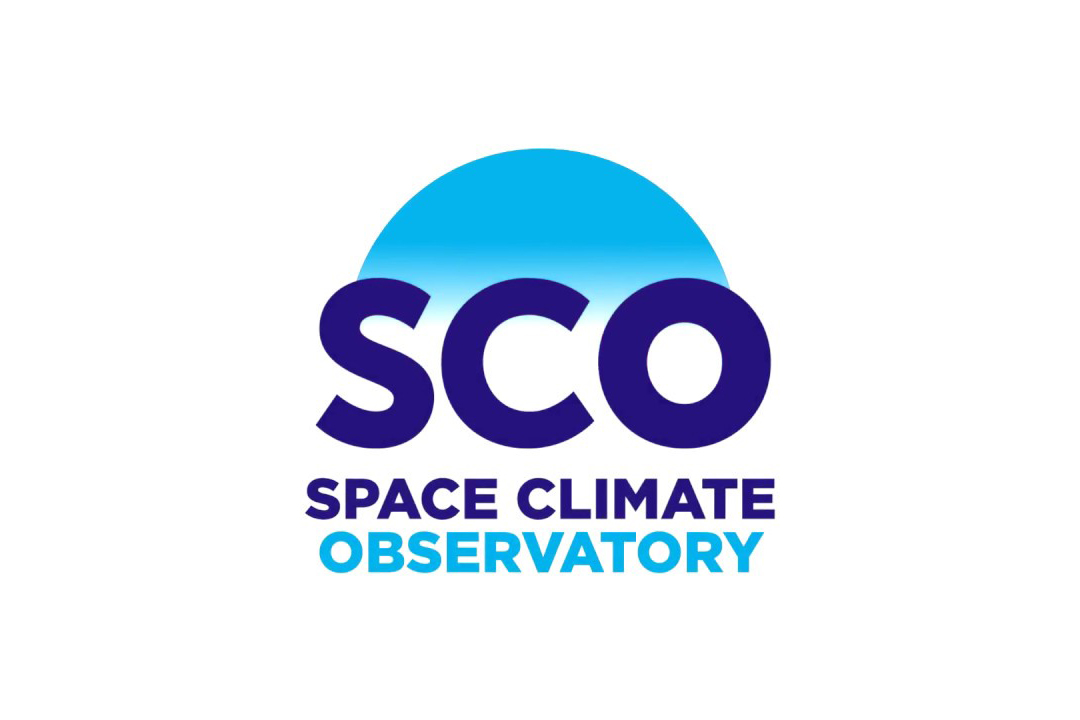Sustainable Development Goal 13: Climate Action
Sustainable Development Goal 13 urges to take action to combat climate change and its impacts*. Climate change is now affecting every country on every continent. It is disrupting national economies and affecting lives, costing people, communities and countries dearly today and even more tomorrow. People are experiencing the significant impacts of climate change, which include changing weather patterns, rising sea levels, and more extreme weather events. Greenhouse gas emissions from human activities are driving climate change and are continuing to rise. They are now at their highest levels in history. Without action, the world's average surface temperature is projected to rise over the 21st century and is likely to surpass 3ºC this century-with some areas of the world expected to warm even more.
Space technologies play a central role in:
- Climate change monitoring
- Weather forecasting
- Disaster management
- Search and rescue operations
*Acknowledging that the United Nations Framework Convention on Climate Change is the primary international, intergovernmental forum for negotiating the global response to climate change.
New Report on International Efforts Using Space for Climate Action
The UN, through support from the UK Space Agency, has published the final report of a mapping exercise aimed at improving the understanding of the landscape of key intergovernmental coordination bodies using space technology to support climate action at the global level. Included in the mapping exercise are those bodies in and related to the United Nations system as well as non-United Nations entities, groups, and partnerships.
Among the key conclusions, the exercise has identified well-coordinated and evolving climate observation, research, science, and policy developed by an ever-increasing stakeholder landscape, however, inconsistencies in the definition of climate action and services are rendering coordination more challenging.


